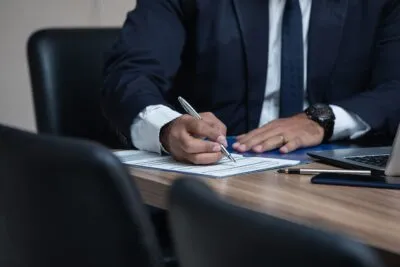
- Originally Published on September 26, 2024
How to Legally Make Someone Delete Your Photos Online
Have you ever discovered that someone posted an embarrassing or sensitive photo of you online without your consent? You are not alone. In today’s digital age, it is all too common for personal images to be shared without permission. But what can you do about it?
In this article, I will explore your legal rights and options for making someone delete your photos online. I will provide a comprehensive overview of the relevant laws, practical steps you can take, and real-life examples of successful photo removals. My goal is to empower you with the knowledge and tools to take control of your online presence and protect your privacy.
Legal Grounds for Removing Photos
In the United States, statutes protecting privacy and intellectual property rights can be used to make someone take down photos of you under certain circumstances. Please note that this is not an exhaustive list of legal grounds for removing photos. Rather, it is a list of potential ways that you can get someone to remove photos of you online.
Copyright Infringement
If you own the copyright to a photo, you have the right to control how it is used and distributed online. For example, if you took a picture or video, you generally hold the copyright (although there are exceptions). So if someone posts your photo or video without your permission, you can send them a copyright infringement notice pursuant to the Digital Millennium Copyright Act (DMCA) demanding that they remove it.
To submit a DMCA request, you will need to include the following:
- The signature of the copyright owner or the signature of the owner’s authorized agent;
- Identification of the copyrighted work;
- Identification of what material or activity is being infringed upon;
- The copyright owner’s or their agent’s contact information;
- A statement that the owner or their agent has a good faith belief that the content’s use is not authorized by the owner;
- A statement that the information in the request is accurate and under the penalty of perjury, the person sending the notice is authorized to act on the copyright owner’s behalf.
If the person refuses to remove your photo after receiving a copyright notice, you can formally register the copyright and file a lawsuit in federal court seeking damages and an injunction ordering them to take it down.
Invasion of Privacy
Even if you do not own the copyright to a photo, you may still have a legal claim for invasion of privacy if the photo was taken or shared without your consent in a way that violates your reasonable expectation of privacy.
There are four main types of invasion of privacy claims recognized in most states:
- Intrusion upon seclusion: Someone intrudes on your private affairs in a way that would be highly offensive to a reasonable person
- Public disclosure of private facts: Someone publicly reveals truthful but private information about you that is not of legitimate public concern
- False light: Someone publicly presents you in a false or misleading light that would be highly offensive to a reasonable person
- Misappropriation of likeness: Someone uses your name or likeness for their own commercial benefit without your permission
Defamation
In some cases, posting a photo of you online may cross the line into defamation if false and damaging statements about you accompany it. To prove defamation, you typically must show:
- A false statement of fact about you
- Publication or communication of that statement to a third party
- Fault amounting to at least negligence
- Damages or some harm caused to you by the statement
For example, if someone posts a photo of you with a caption falsely stating that you are a convicted criminal, that could be grounds for a defamation lawsuit.
Intentional Infliction of Emotional Distress
Finally, even if a photo itself is not illegal to post, the act of posting it could be considered intentional infliction of emotional distress (IIED) if it is done with the intent to cause you severe distress, and it actually does cause severe distress.
IIED claims related to online photos often involve “revenge porn” scenarios where an ex-partner posts intimate photos to humiliate or harass their former partner. Many states now have specific revenge porn laws that criminalize this behavior.
Steps to Legally Remove Photos
If you have identified a legal basis to make someone remove your photo, the next step is to take action. Here is a step-by-step guide on how to legally remove your photos from the internet:
Step 1: Document Everything
Before you contact anyone, document the unauthorized use of your photo. Take screenshots of the web pages where it appears and save copies of the image files. If there are comments or other context, be sure to capture those as well. This evidence will be important if you need to take legal action.
Step 2: Send a Removal Request
In many cases, simply asking the person or website to remove your photo may be enough. Send them a message identifying the specific photo and explaining why you want it removed (e.g., you own the copyright, it is an invasion of your privacy, etc.).
If you are dealing with a large website, look for their DMCA agent or designated copyright contact. Sending your removal request to the right person can speed up the process.
Step 3: Escalate to Legal Action
If the person or website still refuses to remove your photo after receiving a formal legal notice, your final recourse is to take legal action. This will typically mean filing a lawsuit for copyright infringement, invasion of privacy, defamation, revenge porn or whatever legal claim fits your situation.
Taking legal action can be expensive and time-consuming, so it is important to weigh the costs and benefits before proceeding. However, in serious cases involving revenge porn or other egregious conduct, it may be the best way to protect your rights and hold the perpetrator accountable.
Frequently Asked Questions
To address some of the most common questions I hear from clients about removing photos online, here are a few FAQs:
How long does it take to get a photo removed?
The timeline for removing a photo can vary widely depending on the website and the legal claim involved. In some cases, a simple DMCA takedown notice can lead to removal within a matter of days. In other cases involving litigation, it may take months or years to resolve the issue fully.
Can I sue for damages if someone posts my photo without permission?
In some cases, you may be able to seek monetary damages in addition to getting the photo removed. For example, if someone uses your photo for commercial purposes without your consent, you may be able to sue for a portion of their profits. If the publication of your photo causes you measurable harm, such as lost job opportunities, you may also be able to seek compensatory damages. Discuss the possibility of damages with your attorney based on your specific case.
What if I consented to the photo being taken but not posted?
Consent is an important factor in many photo removal cases. If you consented to the photo being taken in a private setting with the understanding it would not be shared, you likely have a stronger invasion of privacy claim if you had a reasonable expectation that the photo would be kept private. If you initially consented to the photo being posted but later withdrew your consent, you may need to rely on a copyright claim if you own the rights to the photo.
How Minc Law Can Help You Remove Photos and Protect Your Online Privacy
At Minc Law, we understand the devastating impact that unauthorized photos can have on your life and reputation. As a leading internet defamation law firm, we have helped countless clients take control of their online presence and legally compel the removal of private, intimate or embarrassing photos.
Our experienced attorneys can help you:
- Assess your legal options: We will review the facts of your case and advise you on the strongest legal claims to pursue, whether that be copyright infringement, invasion of privacy, defamation, or other grounds.
- Send effective takedown notices: Our team will draft and send strategic takedown notices on your behalf, utilizing our knowledge of copyright law, DMCA procedures and other relevant laws to maximize the chances of successful removal.
- Obtain court orders: When necessary, we mat be able to file lawsuitsto legally compel the removal of your photos and prevent them from being reposted.
- Coordinate with law enforcement: In cases involving criminal conduct like revenge porn or hacking, we can work with law enforcement to hold perpetrators accountable and protect your safety.
- Provide emotional support: We understand the emotional toll these situations can take and are committed to providing compassionate, discreet support throughout the process. You do not have to go through this alone.
At Minc Law, we have a track record of success in getting unauthorized photos removed quickly and permanently. We are here to fight for your rights and help you regain control of your online presence.
If you would like to explore your options, please reach out to schedule your initial consultation by calling us at (216) 373-7706 or filling out our online contact form.
Get Your Free Case Review
Fill out the form below, and our team will review your information to discuss the best options for your situation.
This page has been peer-reviewed, fact-checked, and edited by qualified attorneys to ensure substantive accuracy and coverage.



